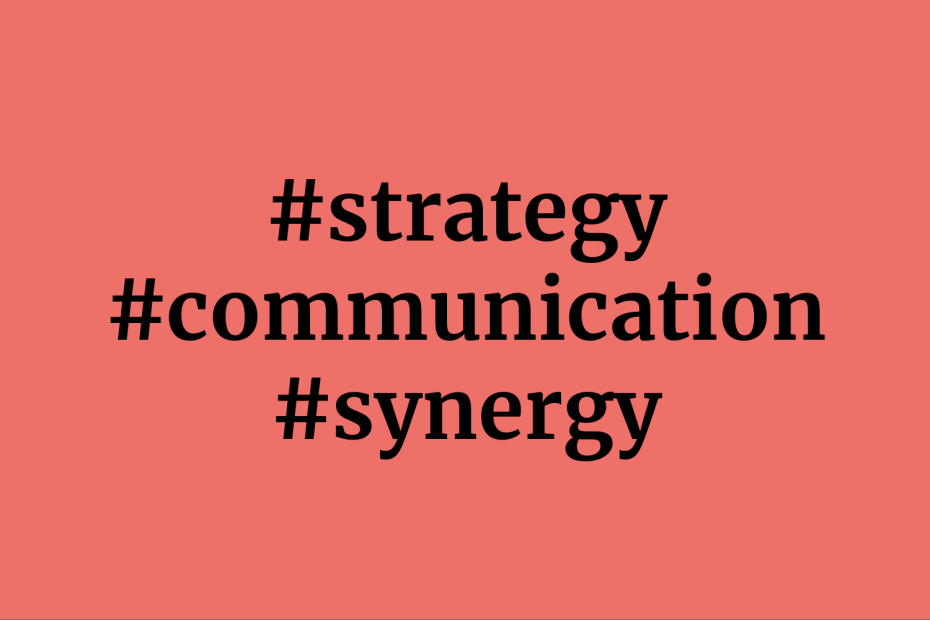Communication in itself is one of the few things in life that accompany us on a daily basis. “One cannot not communicate”, once said by Paul Watzlawick as part of his five axioms of communication, hits the nail on the head: every word, action, and behavior is a means of communication. No matter if that is strategical or not, it causes a reaction in your surroundings. This essay takes a critical approach to communication, in particular strategic communication as a field, describes my personal views on it, and gives insights to situations from my life where I found it to be useful.
Defining Strategic Communication
As so often the definition of the field varies immensely depending on who you ask. Given the context in question, it can range from describing communication in a military setting, political persuasion, or an organization looking to reach its goals. Some scholars of the field consider the current definitions to be too narrow, others would say that like with a road, there is no “one size fits all” and the discipline needs a much more detailed definition in order for research to be fruitful.
Personally, I consider the academic definitions of strategic communication too narrow, and neglecting of other influences. I would take a much more philosophical approach to strategic communication, leading to a much broader definition of the same, but also resulting in a chicken- and-egg problem. Given that, the academic approach to defining strategic communication still makes sense, as everything else would not provide a solid foundation for research to be conducted, and therefore question the existence of the academic approach as a whole.
(Non)-Strategic Communication
When asked about non-strategic communication, I have a hard time wrapping my head around that concept. For me, this leads to a question about whether or not non-strategic communication even exists, or whether there are only different kinds of strategic communication after all. Personally, I would argue that every kind of communication is strategic, but the execution of the same is either conscious or unconscious. Every word you say has a definitive impact on the course of your life – no matter if that is on the short or the long run. One might now say that this makes use of the word “strategic” in a very generic way – but this is exactly what I intend to do. Unconscious or conscious one always executes a strategy. One makes a decision to act in a certain way, say a certain set of words, or adapt ones behavior given the subjective perception of what is considered to be most adequate. Every action causes a reaction, and every decision is target-aimed. Therefore, one follows a path, takes turns, a navigates through life by following a strategy, even thought that is often still modified on the go.
How Strategy Adds Value to Organizations
Despite my personal approach to the matter being a rather controversial one, I agree that a strategical approach to communication aids organizations substantially in reaching their goals in an efficient and cost effective manner. In line with existing research it has become apparent that following protocols for strategic communication enables personnel to develop sophisticated agendas that enable them to be more successful on a day to day. Even though strategic communication may require more thorough preparation beforehand, it has shown to be worthwhile considering the long-term outcome.
Another area where highly sophisticated strategic communication has shown to add „value“ is populistic agendas and warfare. Even though I would question the word „value“ here, it has proven to be successful. Whenever influencing masses is of importance the way in which one communicates is decisive. However, this opens the floor for an entirely new discussion about strategic communication and its close relation to manipulative behaviors, and potential moral concerns that might be raised because of that… and that goes beyond the scope of this paper.
A Personal Case Study
In all three, my professional, private, and academic life I have encountered multiple situations where strategic communication (now coined with a more academic definition in that context) has helped me bridge difficult situations by carefully curating not only the content but also the way in which I communicated.
One of the most recent examples from my professional live was a conversation with a bank in a foreign country that requested financial documents from our local firm – which we discovered we did not have due to a severe management mistake. However, I was faced with a very impatient counterpart whose potential actions had direct impact on the liquidity of our firm. Telling your bank consultant that your bookkeeping is basically non existent and you just recently discovered that because management was absent-minded was in this case not a viable option. Therefore, I had to come up with a strategy for communicating that enabled me to provide information in chunks once it became available to me without the bank noticing that what they asked for could not be delivered at that point in time. Therefore, a strategic approach to communication that was both in line with the organizational goals as well as the requirements from our business surroundings helped me maneuver a difficult yet solvable situation that seemed hopeless at first.
To conclude, I would like to mention that I personally believe that communication can and should be studied, but not over-theorized. In the end it is one of the most practically applied disciplines that every human faces on a daily basis, and to an extent relies on trial and error, no matter how much theory one has studied beforehand. Therefore, to this day I still very much rely on my gut feeling – even when developing communication strategies for important matters.
This article was inspired by a lecture on “Strategic Organizational Communication” held at FH JOANNEUM in the Content Strategy Masters Program. The lecturer for the course was Prof. Dr. Lisa Dühring.
